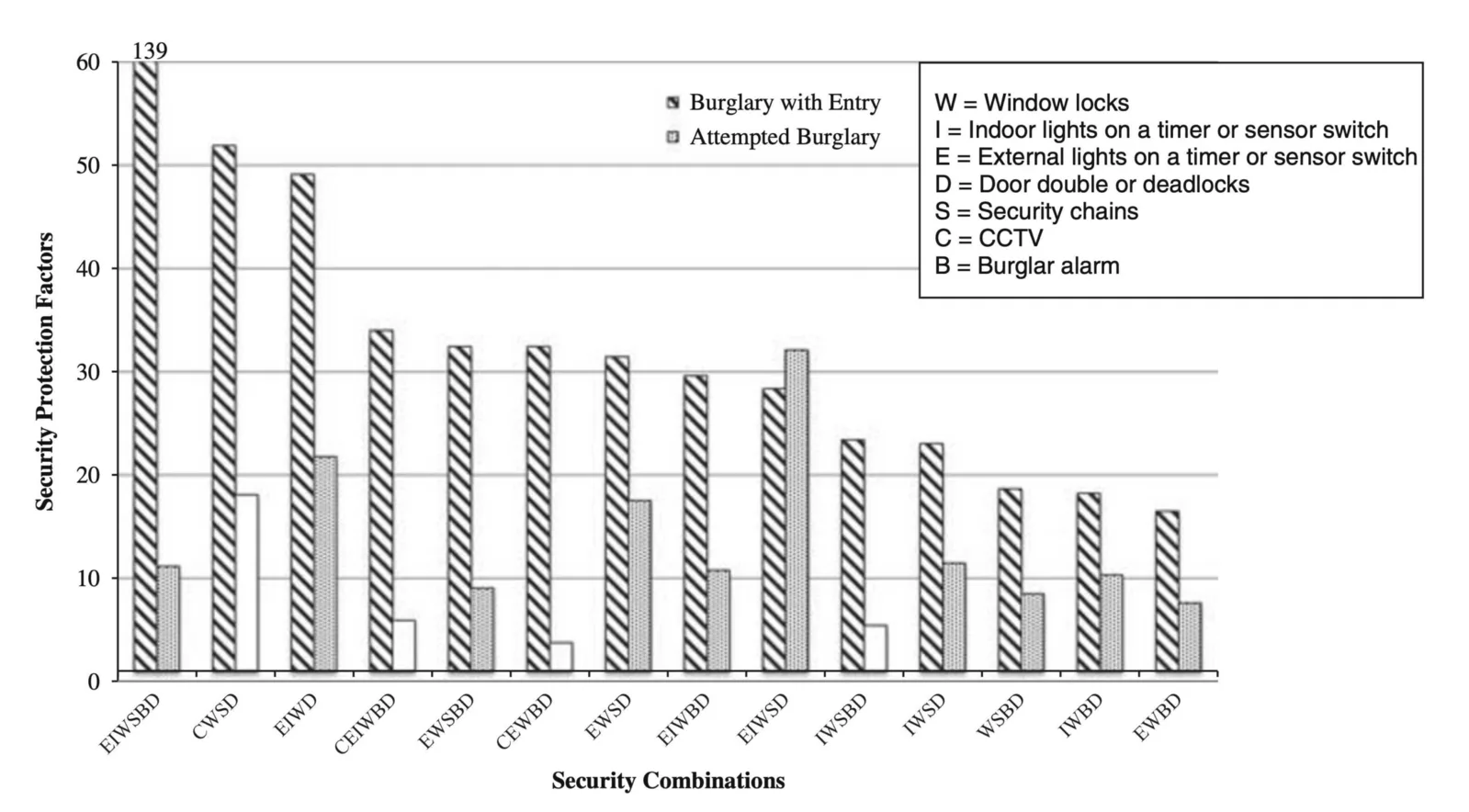– A comprehensive guide to the measures that actually work.
More than half of all businesses suffer break-ins
When the Swedish Federation of Business Owners asked 819 companies if they had experienced a burglary in the past five years, 61% answered "YES." According to The Confederation of Swedish Enterprise, thefts and break-ins cost Swedish companies €2 billion in 2023. But the real number is even higher, since many incidents are never reported.
So how can you make sure your company isn''t one of them? This guide summarises the measures that research and experts agree are most effective.
Why Burglary Prevention Matters
For a business, a break-in means more than lost goods. It can lead to:
• Production downtime
• Increased insurance costs
• Lost customer trust
• Stress and uncertainty for employees
With risks this high, prevention is a strategic investment – not just a safety measure.
Research shows that proactive work is the most effective way to stop burglaries. That''s why my colleagues and I focus on prevention — and businesses should too.
John Forsberg, Head of the Development Department at the Swedish Police’s National Operations Department (NOA).
The three principles of burglary prevention
According to the Swedish National Council for Crime Prevention (Brå), burglary prevention falls into three categories:
1. Make it harder to get in
The simplest and most economical step is to strengthen physical barriers.
• Install doors, gates and windows with certified security ratings
• Reinforce locks, walls and roofs
• Add fences and lockable gates
The Swedish Insurance Group Länsförsäkringar recommends installing doors, gates, windows, locks, walls and roofs with a high security rating. You can also add fences and lockable gates around the premises.
The most cost-effective burglary prevention comes from combining certified security doors, windows and gates.
European Crime Prevention Network, EUCPN
2. Make burglary less profitable
According to EUCPN, 80% of all burglaries are carried out with the intent to resell the stolen goods.
• Mark valuables, tools and vehicles with permanent identification
• Use smart asset registers to track equipment
• Make resale more difficult and increase the chance of recovery

Increase the risk of burglar detection
3. Increase the risk of detection
Nine out of ten convicted burglars say they would never attempt to enter a property if someone appears to be "home." Creating the illusion of activity makes intruders think twice.
You can:
• Install timers that switch lights on and off inside and outside the workplace.
• Park a vehicle outside the building.
• Leave a radio playing indoors.
• Keep valuables out of sight from windows.
Today, Munkfors is a safer place for everyone.
How to cooperate with neighbouring businesses:
• Contact the municipality, police and nearby businesses to create a joint security plan.
• Document people moving around vulnerable areas at unusual times.
• Start a Facebook group to share updates and warnings.

Source: Tseloni et al.
Stop Burglars With a Security-rated Industrial Folding door
Torverk offers both manual and motorised folding doors certified to SK2 and SK3 standards, corresponding to Resistance Class 3 (RC3) and Resistance Class 4 (RC4).
Read more about security-rated Industrial doors
What Works Less Well?
False security can cause trouble.
Many rely on burglar alarms to deter intruders. A French study shows that alarms, when combined with other measures, can effectively prevent break-ins. But two scientific studies in England and Wales found that home alarms can sometimes have the opposite effect, since burglars interpret the presence of an alarm as a sign that valuables are inside.
Interviews with convicted burglars reveal that alarms don''''t particularly scare them. The European Crime Prevention Network (EUCPN) concludes that alarms are not cost-effective, as they are relatively expensive and don''''t significantly reduce the risk of burglary.
FAQ: Burglary Prevention for Businesses
What is the most effective way to prevent burglary at a business?
The most effective measure is to make it physically harder for burglars to enter, using certified security doors, windows and gates. Research shows that physical barriers combined with other measures give the strongest protection.
Do burglar alarms really stop break-ins?
Not always. Studies in England and Wales show that alarms alone do not significantly reduce burglary risk, and burglars often see alarms as a sign that valuables are inside. Alarms work best only when combined with other security measures.
How can I make my company less attractive to burglars?
You can mark valuables, tools and vehicles with permanent identification, keep expensive equipment out of sight, and make resale of stolen goods more difficult. This reduces the incentive for burglars to target your business.
Is cooperation between businesses effective against burglary?
Yes. Neighbourhood cooperation is proven to work. When companies share information, patrol industrial areas and report suspicious activity, the perceived risk for burglars increases, making them less likely to attempt a break-in.